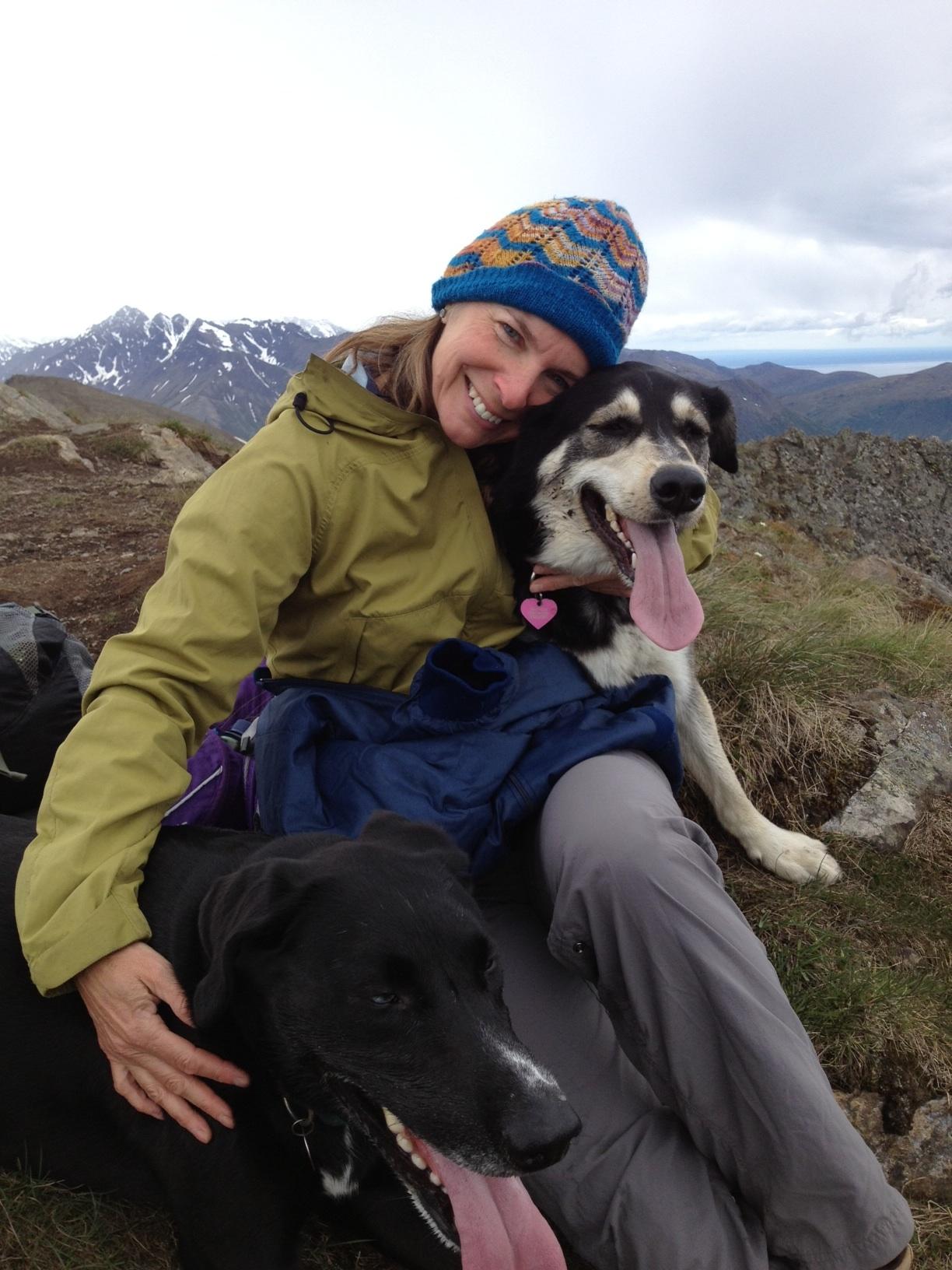
The ache and the awe of tender gravity
Marybeth Holleman’s first book of poetry, “tender gravity,” came out this month, and we’re excited to host an in person reading on Sept. 8 so she can share it with you. We hope you can make it.
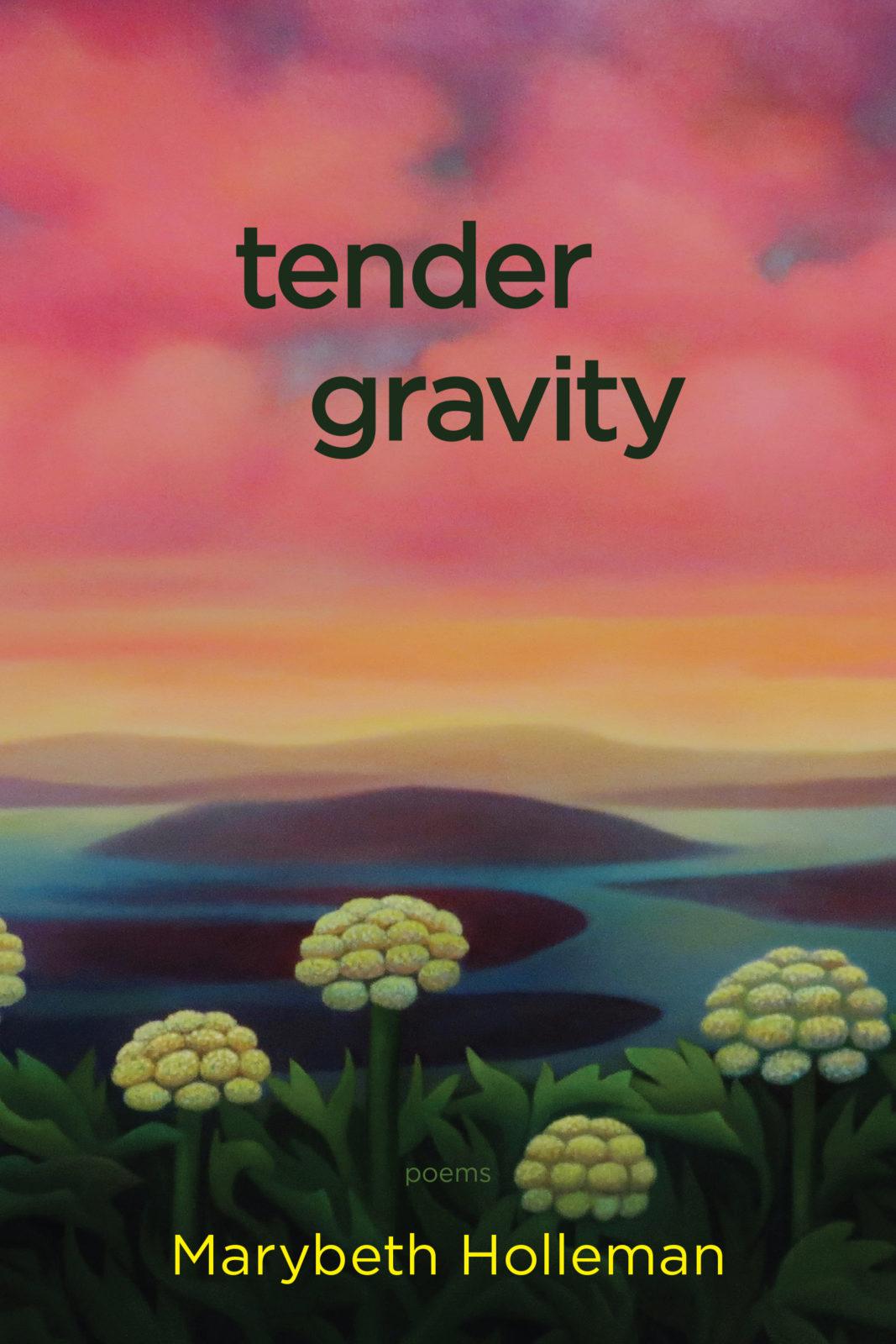
(If you can’t get to the event in Anchorage, we’ve got you covered with a virtual event on Sept. 15.)
Marybeth grew up in North Carolina’s Smokies and came to Alaska a few years before the Exxon Valdez oil spill. She has long written about natural places in essays and advocacy work, and has published several nonfiction books, “The Heart of the Sound” and “Among Wolves.”
In her debut book of poetry, she considers the wisdoms expressed through sundew and sphagnum, a paddling trip and a charging bear, constellations and the tiniest bog plant, always with yearning and a draw of breath.
Below, Marybeth talks about her relationship with poems and nature, her fears and sorrows for the planet, and what taking action looks like. When asked to recommend three books that folks should read right now, she chose five; when asked to speak to fear and sorrow, she sends us to the solace of saplings and chickadees; when asked what any one person can do, she redirects to what we can do together.
We’re so grateful to Marybeth for her words and support over many, many years in speaking up for nature and all who are nourished by it.
What can you say/observe/share about nature and your relationship with it in poetry that’s distinct from other genres of writing?
In poetry, I think it can be easier to let the ineffable be expressed. It’s more possible to let what’s beyond the human have voice. And that’s really one of my primary quests as a writer: how can I give voice, or, rather, reveal the voice of, the more-than-human world? In “Heart of the Sound,” those short prose pieces, which could also be considered prose poems, are a way of letting place and wild beings be heard more directly. In poetry, you don’t need to write in complete sentences, paragraphs, or even any standard punctuation. With such a wide-open form, it can be more possible for the beyond-the-human to show up, to speak. Some of these poems were written in-place, sitting with the sundew, for example, and just listening, recording what came.
When thinking and feeling about land and water, animals and the planet, what fears or sorrows feel embodied for you? What sense of grounding or resilience do you find? Why do you think you chose poems this time to express these thoughts and emotions and relationships?
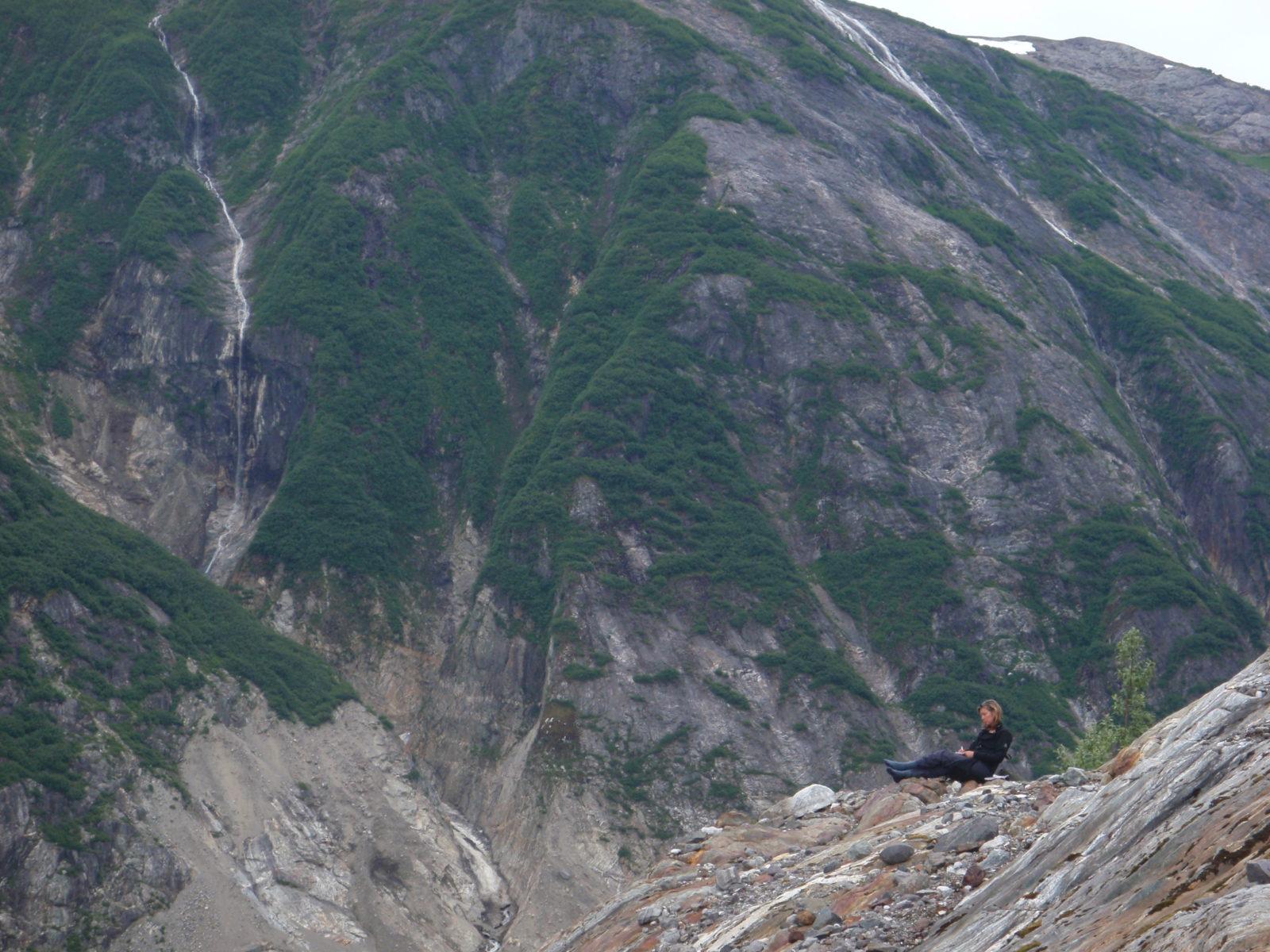
Like most of us now, I can easily slip into despair about all we’ve lost, and all we’re poised to lose…about all the ways we as humans have failed to live on this gorgeous planet with wisdom and awareness and respect for all the other lives who share it with us. Despair, anger, frustration, grief…it’s very easy to go there; I spend a lot of time there. And not just because the news is full of it, but also whenever now I see something different, a newly fallen tree, for example, along a familiar trail, I stop and think, is this because of our weirding weather? Is this because of the new bike trail carved through here that cut off some of its roots? Is this because of something we humans, in our mindlessness, have done?
What I’ve found is that, as Rumi wrote, “the cure for the pain is in the pain.” That is, for me, to just get myself out on that trail, and walk, and notice everything. All the dead spruce trees, and all the saplings pushing up with their new needles. Getting out into the natural world, regardless of whether there’s fire smoke in the air or not, will inevitably make me feel better. More empowered. Avoiding the despair only makes it cling more strongly. I have to face it, step into it, and just keep walking. And the natural world never fails to give me solace, and lessons on how to be. I notice the lives around me, the chickadees flitting from branch to branch, the plumping of the rose hips, and I’m reminded of how they are always in this moment, nowhere else, and so I put myself in this moment, nowhere else.
I often quote to myself that wonderful Wendell Berry poem, “when despair for the world grows in me…I come into the peace of wild things who do not tax their lives with forethought of grief.”
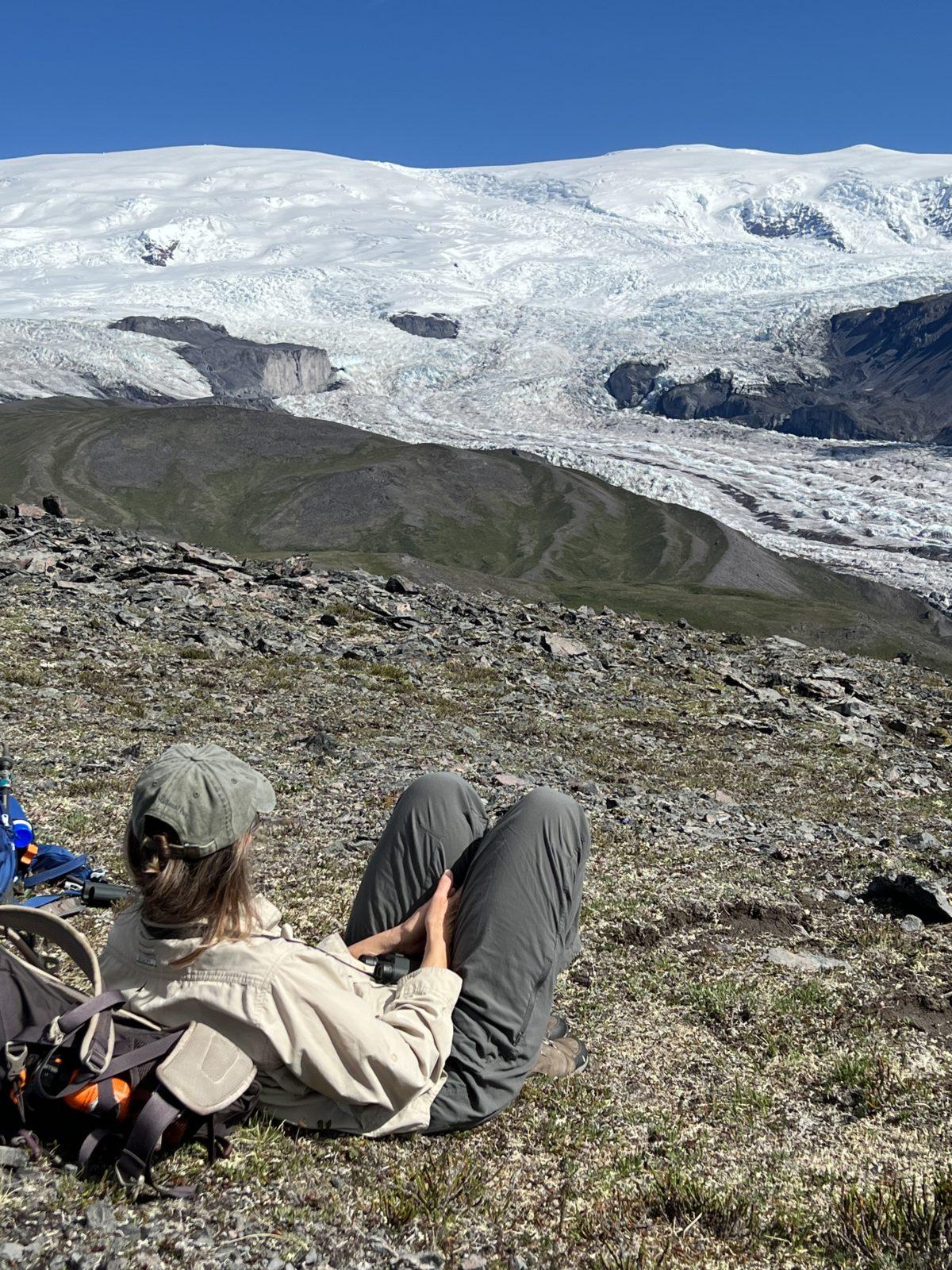
And then to turn and write about/of/for/with them, that can really open my despair into a sense of power, even delight. It’s very exciting when I feel as if the words I’m writing are just coming through me, that I’m just the conduit, for something beyond my small human self.
I chose poems because they can reach on another level. But of course I still write prose. We get to use all the tools in our toolbox. Maybe different forms of writing are like different facets of a prism – they’re all different angles of approach, all different angled windows, and they all let the light in.
Do you believe writing or reading a poem or other genre can inspire someone to action? Do you think the interplay of words and someone’s mind and heart can enact a change of mind or heart? Has this happened to you and do you have an example?
Absolutely. Otherwise I wouldn’t be a writer. Nothing thrills me more than when I hear from a reader who tells me how what I wrote inspired them to act. In response to my essay in Orion magazine about Prince William sound after the oil spill, I heard from a North Carolinian who was inspired to act on behalf of the Eno River which flows near where he lives. A reader in British Columbia recently told me that my poem about oak trees changed the way he looks at them now. I think first, a piece of art shifts something inside of us, and then later, that shift leads to a different choice, a new action. We might not always know what causes what, but I do believe that art, including writing, can, and has, changed hearts and minds.
And we have some proof. The historian Donald Worster showed how this country’s tradition of nature writing—from Thoreau to Carson and onward—helped bring about passage of The Wilderness Act.
Of course, it’s a slow business, changing enough hearts and minds that political machinations change as well. But it can help nurture those on the front lines doing direct action. Ellery Akers, a California poet who will be joining me for the virtual event, once told me, when I was doubting whether writing was the best use of my time, about doing a poetry reading and having a well-known activist come up to her afterwards to thank her, telling her that her poems helped to sustain and inspire him to continue his activism.
What kind of actions do you take to address climate and biodiversity issues? With so many huge systemic problems around these issues, what do you think is realistic for an individual person to do and expect of themselves?
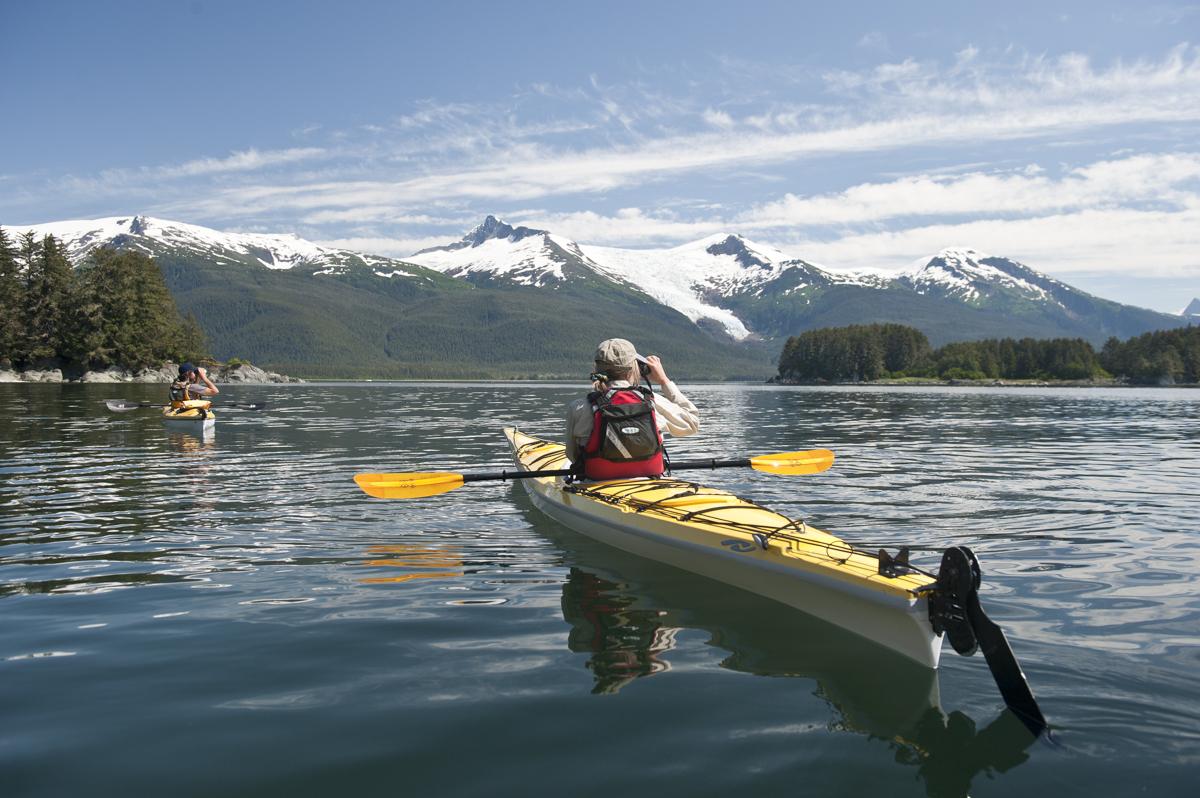
Well, I consider my writing to be activism. Every time I send out a poem or essay, it’s a direct action on behalf of the planet. But there are times when I lay down my pen to pick up my sword. Moments when I can see direct actions that I in particular can take that have a chance to be effective.
Sometimes it’s something that’s part of a larger movement, like ThirdAct’s voter registration program. Sometimes it’s more local and intimate, like removing wire from around a growing tree, or participating in a marine debris cleanup. And then there are lifestyle choices that help me tread more lightly on the Earth, like choosing a plant-based diet.
I’m always looking for ways to support the younger generations, to have their backs. Such groups as Alaska Youth for Environmental Action, Sunrise Movement, 350.org.
There’s so much that we as individuals can do—and even more when we “link arms,” as Joanna Macy says. I think it’s important to work on many levels, and to work in ways that feel, at least some of the time, joyful.
What do you see as the biggest systemic challenge ahead for the global society to make the course change necessary for the planet’s health?
We need to change our dualistic way of thinking…it’s not us/them. not either/or. it’s both/and. we must see, speak, act in the multiverse of life on the planet…we must stop seeing ourselves as separate from, must see beyond the human to our shared experience.
It’s this “othering”—of people, of all beings who are different from us—that’s gotten us into this hot water.
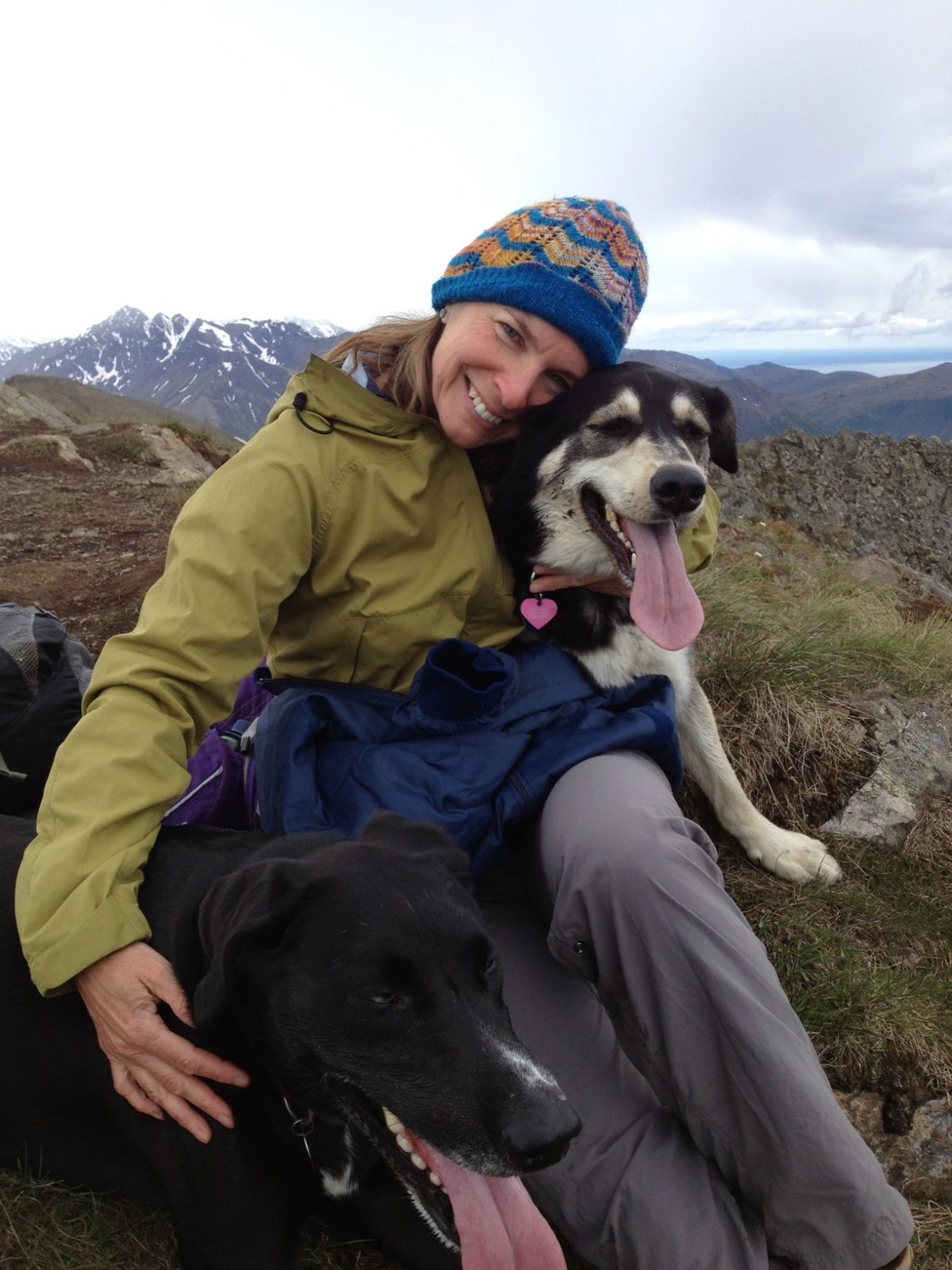
As Audre Lorde wrote, “There is no hierarchy of oppressions.” When one is oppressed, all are oppressed.
I really don’t understand why humans are the way they are. I don’t understand how we can so callously cut down a tree with no regard to its life, or all the other lives that it nourishes. I think, for example, of the roadwork along O’Malley Road – all the trees they cut – all these seemingly small transgressions, local harms, that add up to the larger losses. When we cut ourselves off from the rest of the living world, when we set ourselves apart, we allowed ourselves to do harm without feeling it as harm…but it is. And it comes back around to harm us. We are not separate.
Can you describe your more recent experience of awe in nature?
I just had COVID, and was down for a week, right when my book was released and I had so much to do….I couldn’t even get out to walk the dogs…which I usually do every day, for at least an hour, on some of our wonderful trails…finally on the sixth day I went down to McHugh, dropped Rick and dogs at Potter for them to run the whole way. I started down the familiar trail, one I’ve walked a thousand times, lined with those giant cottonwoods, all the devil’s club with their broad leaves spreading out below them…everything so lush and green and full of life. Mushrooms popping up everywhere, water music coming down the slope. And it was so beautiful, and I felt so lucky to be there, to have it still be here, it just brought me to tears of joy. I remember coming here after the McHugh fire and being so relieved that the fire had spared these trees, and knowing, now I know, now we know, that they may not always be spared.
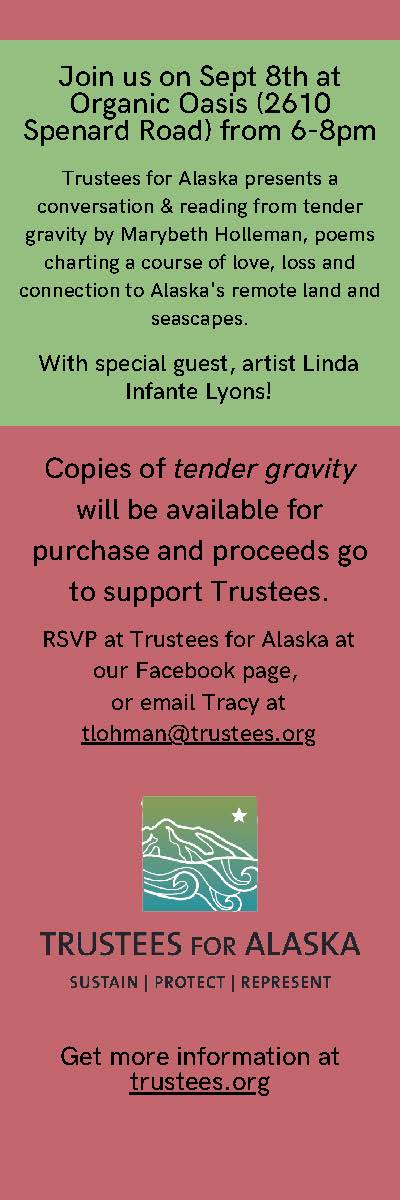
What are three books you recommend for our time right now!
- Ross Gay – The Book of Delights
- Joanna Macy – Active Hope
- Mary Oliver – any of her poetry books
- Merlin Sheldrake – Entangled Life
- Suzanne Simard – Finding the Mother Tree
tender gravity events with Trustees
Join us at 6 pm Sept. 8 at Organic Oasis in Anchorage to hear poems by Marybeth, music by a young Alaska cellist, and a conversation with Linda Infante Lyons, the artist who created the book cover art. A sign language interpreter will support the event.
For those who can’t make the event, worry not, for we’re doing a virtual poetry ping pong event with poets Marybeth and Ellery Akers on Sept. 15 at 2 pm Alaska time.
Find out more about Marybeth’s books and writing on her website.


